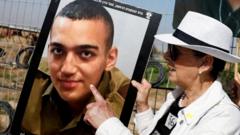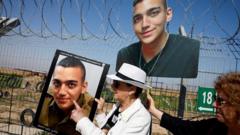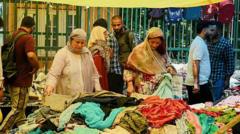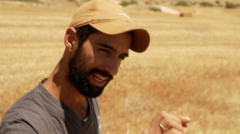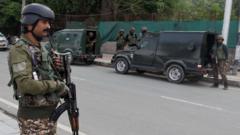Former detainees from Gaza have recounted severe mistreatment by Israeli military personnel, including chemical burns, beatings, and electric shocks, amid claims of systematic abuse within detention centers. As the IDF denies these allegations, international legal experts highlight the violations contrary to human rights laws.
Eyewitness Accounts of Torture: Former Gazan Detainees Speak Out
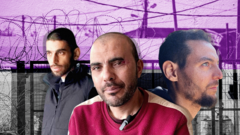
Eyewitness Accounts of Torture: Former Gazan Detainees Speak Out
Released Palestinian detainees narrate harrowing experiences of torture and abuse during their time in Israeli detention facilities, raising grave human rights concerns.
Released Palestinian detainees have come forward to share chilling accounts of torture and mistreatment suffered during their detainment by Israeli military forces and prison staff. Interviews conducted by journalists reveal harrowing stories of chemical burns, physical assaults, and other forms of inhumane treatment, contributing to a wider discourse on human rights violations.
One detainee, 36-year-old Mohammad Abu Tawileh, described his traumatic experience of being doused with chemicals and set on fire during interrogation. “I thrashed around like an animal in an attempt to put the fire out,” he recalled, detailing the brutality of his ordeal. The testimonies from released detainees follow their arrest in Gaza after the brutal attacks by Hamas, where they were suspected of having ties to the group and held indefinitely under Israel's Unlawful Combatants Law.
The five released men reported a litany of abuses, including being stripped and blindfolded, subjected to electric shocks, denied medical care, and threatened with dogs. Some detainees reported witnessing the deaths of fellow inmates and being exposed to sexual violence while incarcerated.
Responses from the Israel Defense Forces (IDF) rejected any systematic abuse claims, asserting that any allegations would be investigated, although they did not address the specific accusations made by the men. The Israel Prison Service (IPS) also claimed ignorance of the allegations surrounding conditions in their facilities.
Experts in international law weighed in, stating that the treatment experienced by the detainees not only contradicts Israel's legal obligations under international law but meets the threshold for torture. Dr. Lawrence Hill-Cawthorne pointed out that humanitarian regulations mandate the humane treatment of all detainees, regardless of their suspected affiliations.
As the detainees shared their stories, they revealed a terrifyingly common pattern of abuse upon arrest, with many alleging they were beaten and stripped of dignity consistently through their detention process. Their releases came as part of a ceasefire agreement, leading to mixed feelings of relief and trauma exacerbated by the harsh realities they faced.
From lost weight to enduring pain from untreated injuries, the released detainees expressed deep psychological scars influenced by their experiences in detention. Mohammad Abu Tawileh, still grappling with the aftermath, stated, “I am unable to do anything because of my injury, because my eye hurts,” illustrating that for many, returning home is complicated by lingering trauma from their time in captivity.
Meanwhile, concerns persist over the treatment of those still in custody, as over fifty hostages are reported to remain unaccounted for in Gaza. Humanitarian organizations emphasize the urgent need for oversight and access to detainees to ensure their welfare, while the plight of released detainees underscores the critical observance of human rights in conflict situations.




